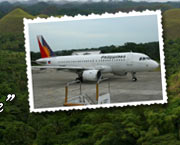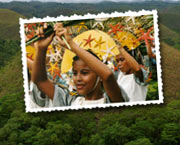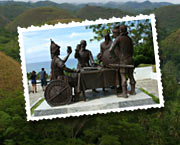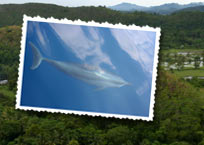Be A Coral Friendly Diver!
IJsselstein, Wednesday, 17 April 2002
Coral friendly divers go out of their way to help protect and preserve the coral reefs they visit. They pro-actively support marine protected areas and would never intentionally harm a reef or its inhabitants. Here are some of the ways Coral Friendly Divers support protected areas:
- In the water, Coral Friendly Divers
- Avoid all contact with corals and other marine life and never chase or ride marine animals
- Take nothing living or dead out of the sea, except recent garbage
- Maintain good buoyancy control
- Practice good finning technique and body control
- Ensure all equipment is well secured so that it cannot drag or snag on corals
- Only handle, manipulate or feed marine life under expert guidance, never just to take photographs
- Avoid using gloves and kneepads in coral reef environments
- Out of the water, Coral Friendly Divers
- Encourage and support the use of dive moorings
- Avoid buying souvenirs which include coral, turtle or other marine life
- Learn all they can about coral reefs, the fish and marine creatures they encounter of the reef
- Take care not to litter especially aboard dive boats
- Always pay protected area fees (even if these are voluntary)
- Strictly obey all local dive rules, regulations and customs
These rules aren't to difficult to follow, and if you follow them, you will leave behind the coral reefs at least as nice as they were before you came, and preserve their beauty for the diver after you, and for future generations. Become a Coral Friendly Diver today!
Much more information on coral reefs and coral friendly diving can be found on the web site of the Coral Reef Alliance (CORAL). They have also prepared a check list for responsible diving facilities and tour operators, which is worth reading, and to bring to the attention of diving facilities, as maintaining the coral reef is also essential to the future of their business.
Sustainable Diving Checklist
Responsible diving and tourism are crucial to protecting coral reefs, which are among the world's most fragile and endangered ecosystems. At the current rate of destruction, up to 70% of the world's coral reefs may be killed within our lifetime. The following questions enable divers, resort owners, dive boat operators and other people involved in dive tourism to ask themselves if their practices are helping protect coral reefs.
Before a Dive Trip
- Are visitors encouraged to learn about the geography, culture and ecology of dive destinations to be visited prior to leaving home?
- Is pre-trip information about the destination's local customs and proper dive etiquette provided to all visitors?
- Are references to educational materials provided to visitors ahead of time to facilitate the learning process?
- Is specific attention drawn to coral reef ecology and to guidelines/regulations for boating, snorkeling, SCUBA diving, fishing and other recreational uses of the reef?
- Are tours designed to enhance visitor awareness and understanding of the coral reef ecosystems that will be visited?
- Do tours respect all local guidelines, laws, regulations and customs?
- Are local dive guides and masters hired where possible and appropriate?
- Are local perspectives sought in planning interpretive programs?
- Are pre-dive talks offered by knowledgeable dive masters? Do they educate divers about the special features of the dive sites and reinforce rules for divers, such as:
- Maintaining neutral buoyancy;
- Maintaining control of fins, gauges and accessories;
- No touching, standing on or collecting coral;
- No feeding or handling fish and other living organisms;
- Abiding by any fishing and game regulations?
- Are mooring buoys used when possible, anchors never dropped onto coral reefs?
- Are engines well maintained to avoid release of petroleum products in reef areas?
- Is all sewage disposed of in a way that does not affect the nutrient balance of the reef ecosystem?
- Are environmentally-sound methods of trash disposal used on boats and on the land?
- Are special provisions made for disposal of harmful susbstances, such as chemicals used for film processing?
- Do tour operators limit the group size and frequency of dives?
- Do dive masters rotate dive sites to avoid over-using a particular site?
- Do dive masters verify the proficiency of new divers before allowing them to dive at fragile or difficult dive sites?
- Are visitors encouraged to participate in local conservation efforts, particularly regarding the use of energy and fresh water?
- Are visitors informed of how they can make donations or give other support to local coral reef conservation initiatives?
- Do tour operators donate money or assistance to help the local environment?
- Do tour operators work with local authorities to minimize the environmental impact of visitors, particularly in marine protected areas?
- Is all construction planned to avoid negative environmental impacts on coral reefs, mangrove and seagrass ecosystems?
- Is public participation sought and encouraged for all projects affecting the community?
- Are local traditions and use patterns for the reefs respected?
- Are local naturalists hired when possible and appropriate?
- Do visitors stay in lodging that fits the environment?
- Are local businesses and service providers supported as much as possible?
- Are visitors encouraged to buy authentic arts and crafts of local artisans and to purchase other products and services which benefit the local economy?
- Is purchasing coral or souvenirs made from coral, turtles and other threatened wildlife prohibited or strongly discouraged?
This list was presented by The Coral Reef Alliance (CORAL) to the U.N. Conference on Sustainable Tourism in the Dominican Republic and the International Coral Reef Initiative Workshop in the Philippines in 1995. It is based on the "Green Leaf Questionnaire" developed by the Pacific Asia Travel Association (PATA). Additional suggestions are welcome.
Derived from materials by the Coral Reef Alliance
What readers think...
| Blue Freedom Apnea wrote: |
| Monday, 6 January 2020 12:17:20 PHT |
| There is new freediving school open in Panglao, Bohol. They are non-profit organization that offer AIDA and Molchanovs courses from beginner level to instructor level. If you want to explore Balicasag island in Panglao, you can also do fun dive with them. Checkout their website is https://bluefreedomapnea.com . You can also send an enquiry to their enquiry page Send Enquiry. #freedive #freediving panglao #freediving bohol #freediving philippines |
| Samata Pandey wrote: |
| Sunday, 27 February 2005 11:47:57 PHT |
| Please maybe put a checklist on what you should bring when you go diving like snorkels, fins (etc.) Otherwise it is good
Good idea!--Jeroen |
Also give your comments on this article
We reserve the right to remove or edit comments posted on this website. Please read our conditions of use for details. You can use <i>italics</i>, <b>bold</b>, <p> new paragraph, <a href="url">link</a>. Other markup will be removed. Use of the forums for advertising is prohibited. Enterprises located in Bohol can request to be added to the business directory.





